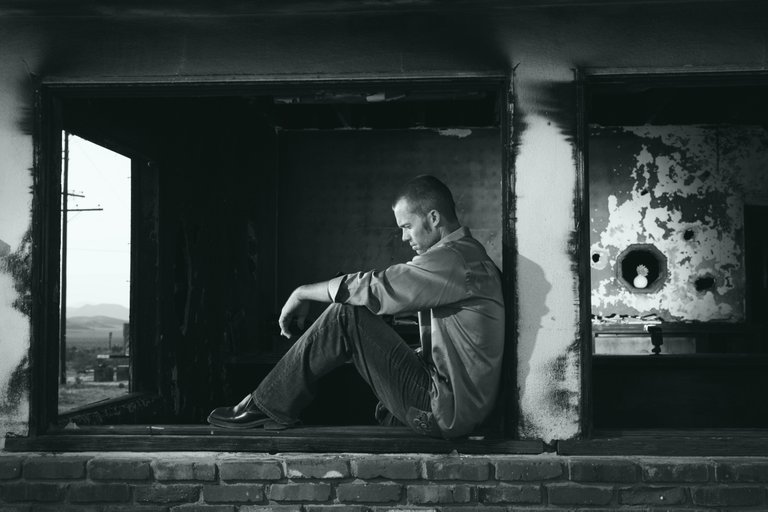The Freedom To Fail
There were certain phases while growing up where my parents were always there to catch me before I ever hit the ground.
Sometimes, this could be something like protecting me from the consequences of a poor grade or bailing me out of a sticky social situation.
At the time, I saw their constant interventions as an expression of their love and care, wanting the best for me.
But little did I know, this partial cushioned upbringing was setting me up for an unexpected awakening later in life.
I think this lack of consequences is a concerning trend that extends far beyond my own personal experience. When individuals or organizations are repeatedly shielded from the natural outcomes of their actions, a dangerously distorted sense of reality can be fostered.
And the supports (props) keeping that false reality in place become increasingly unsustainable.
Naturally, this imbalance cannot last forever. You can't swing a pendulum on one side for far too long and not expect it to swing back(without severe ramifications).
The Individual Perspective
The lack of consequences I experienced as a child is a prime example of this problematic trend.
Shielded from developing crucial life skills like resilience and accountability, I never learned early enough how to get back up on my own, learn from my errors, and apply those lessons going forward.
As I grew older, this manifested as an inability to cope with failure, especially in core areas of my life.
It's kind of amusing writing this now but I struggled to handle even minor setbacks some years ago, quickly becoming flustered and looking to others to step in and rescue me.
What had happened is that I had developed an unrealistic expectation that I should be insulated from consequences, which left me woefully unprepared for the primary challenges of adulthood.
The Organizational Perspective
The dynamic of shielding individuals from failure is not limited to the personal realm - we see it playing out at the organizational level as well.
Time and again, especially in recent years, we witness companies and entire industries receive bailouts, subsidies, and other forms of government intervention when they fail to perform.
One example is the case of the airline industry, which had received extensive government support during the COVID-19 pandemic. travel came to a grinding halt and airlines were granted billions in federal aid to prevent mass bankruptcies and layoffs.
This may have prevented short-term economic devastation, but it also insulated the airlines from the need to fundamentally restructure or rethink their business models in the face of the new realities.
Much like a child who is constantly rescued from their mistakes, such organizations may never have to fully grapple with the consequences of their missteps.
Instead, they are propped up by external support, reinforcing a false sense of security and an unearned entitlement to success.
In my view, this undermines the natural forces of supply and demand, stunts innovation, and erodes healthy competition. The end result is a distorted business (or market) landscape, where success is decoupled from merit and failure is robbed of its instructive power.
The Pendulum Effect
Of course, this imbalance of perpetually shielding individuals and organizations from the consequences of their actions cannot be sustained indefinitely. It's simply unnatural.
A pendulum cannot stay in one direction, the distorted reality created by this dynamic is bound to swing back in the opposite direction.
The question is not if this correction will occur, but rather when and how severely.
For individuals like my previous self, who have been coddled and insulated from failure their entire lives, the reckoning could come in the form of a sudden, jarring inability to cope with new forms of real-world challenges.
On the organizational level, the pendulum swing has already manifested to a certain degree. Withdrawal of government support, leaving companies that have become dependent on bailouts to suddenly fend for themselves.
Which triggered a cascade of bankruptcies, mass layoffs, and broader economic instability, a reminder of the folly of propping up failure.
The freedom to fail is an essential component of growth, both for individuals and organizations.
Giving in to the temptation of shielding ourselves and our institutions from the consequences of our actions will always come at a heavy price.
Thanks for reading!! Share your thoughts below on the comments.
Posted Using InLeo Alpha


I have learned the hard way how you can rebuild from your failure.
It could be worse if I were alone
It gives valuable lessons in life
Thank you for this inspiring article
Peace
You're definitely not alone. Arguably, we learn more from failure than from success, and rebuilding from the former ensures less mistakes the next time around.
Thanks for stopping by :)
Your post reminded me, at a personal level (but I guess we can extrapolate at the business level), about the book of John C. Maxwell, Failing Forward. Failure is a stepping stone to success. Strangely, if one is shielded from failure, they can apparently succeed, but when they face reality without the shield, it can be a hard awakening.
Right! That hard awakening can be potentially life changing too, in a good way, because we see reality more for what it is. Without failure as a stepping stone, success often stands on shaky foundations.
I'm more familiar with the author's leadership books, the title looks interesting, will check out the book.
Thanks for stopping by :)
Something like this happened to few pupils of mine when I taught at a private school.
Where parents came to the school to ensure their kids were promoted or made to pass even when they needed to learn what they did not know. They kept being promoted with no knowledge even on the basic reading skill, till it became too much of a hassle/ overwhelming for the kids who thought ‘they were helped’ at the time.
Failure is the intricate detail that spices up success to be what it truly is. An unshakable success that could stand the test of time.
So true, I think many children at school tend to fall into that situation, getting shielded from hardships by their parents, who think they're just doing the best for them. I think it's just much better to let children experience the consequences of failure early on and built on that, getting better over time.
That's a really good way of looking at it, failure spices up success ;)
Thanks for stopping by :)
Exactly. My pleasure.💕